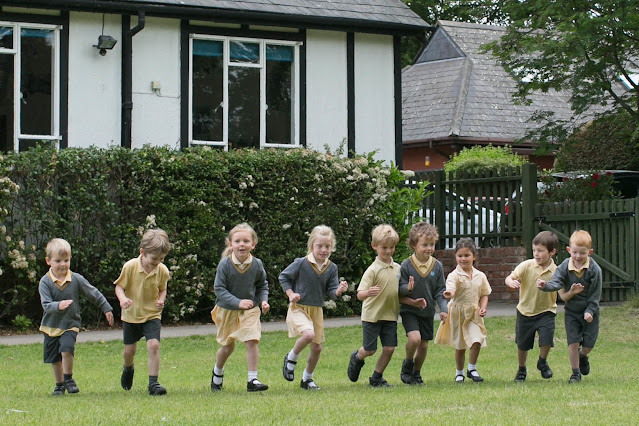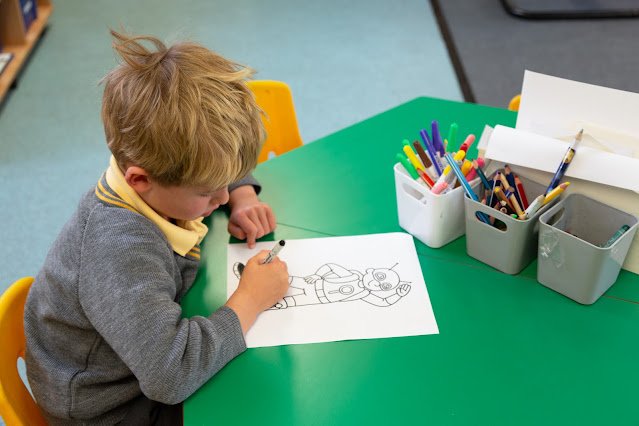Kindness on the curriculum
How teaching kindness can help your child to be secure and confident in order to value themselves and others throughout life.
Kindness is good for the body and the soul. We know this and we know the value of kindness in a busy and challenging world. Science has shown that the benefits include increased self-esteem, empathy, compassion and overall wellbeing. It can also physically decrease blood pressure and stress hormones. Good for the body and good for the mind.
It is also hugely contagious. When Louis Armstrong wrote the words ‘Oh when you smilin’, when you smilin’, the whole world smiles with you’ he captured the power, the ripple effect that a kind act can have not just on yourself but on so many others.
There are so many great benefits and as children grow in their minds and bodies, it is clear that kindness should be a part of everyday learning if we are to equip them to thrive as happy, healthy, well-rounded individuals.
Be kind to yourself.
Kindness is not simply about how you treat others; it is how you treat yourself. We have all experienced really challenging times, but it has provided us with the opportunity to stop and reflect on our lives, hopes and dreams.
People can be good at verbally beating themselves up, comparing themselves to other parents, for example, and using too many ‘should haves’. This negativity is the start of a vicious cycle so it is really important to be kind to yourself. How you treat yourself sets the tone for how others treat you and is a great lesson for your little one. 
Happy, healthy children.
The pupil voice should be the loudest. At The Firs, the individual is at the centre of all that we do, and every child has a single page profile created when they arrive with us. This evolves as they do, but it includes statements about the things people like and admire about them, what makes them happy and how they like to be supported.
Furthermore, since our return from covid, we have revised our approach to pastoral care, with a new appointment of an inclusion leader, identified staff members as Mental Health First Aid champions and undertake an annual PAAS survey (pupils' attitudes to themselves and others), meaning that we can swiftly identify and issues and concerns of target children and incorporate bespoke interventions to meet their individual needs.
Whilst any good school will have these measures in place, kindness should remain a core element in the values, the culture. ‘We treat others as we would like to be treated, We are helpful and kind, We are honest and truthful, We listen respectfully, We share, We forgive, We learn from our mistakes. 
Kindness is best learned by experiencing it.
Why is teaching kindness so important? Kindness isn’t just about feeling good, although happy children are what we are all, ultimately aiming for. It is about all the other benefits that feed into and from it, like forming social connections and trust. It is about a sense of belonging and self-esteem associated with doing a good deed. It is about that hormone, oxytocin and how being kind triggers it, increasing happiness and reducing stress.
When children partake in small acts of kindness, especially when it is helping others less fortunate than themselves, it provides a real sense of perspective and empathy. Even if we don’t speak the same language, you can show kindness by a simple smile, making people feel welcome and happy. Kindness is also the antithesis of bullying.
In my experience, fostering a warm, inclusive, and kind school environment leads to a positive one. If children feel good about themselves, it has a favourable effect on their learning, memory, mood, sleep and health. This means better concentration and more willingness to learn, allowing them to be the best that they can and want to be.
More than the curriculum.
Priorities are shifting in schools, there is a focus on mental wellbeing, but education is about more than simple academic achievements. It is about enabling pupils to flourish in life, whatever goes their way. We all want the best for our children. Education, in today’s world is about providing them with the academic and non-academic tools that will enable them to flourish as well-rounded individuals throughout life. And learning and practicing kindness is a key component.



Comments
Post a Comment